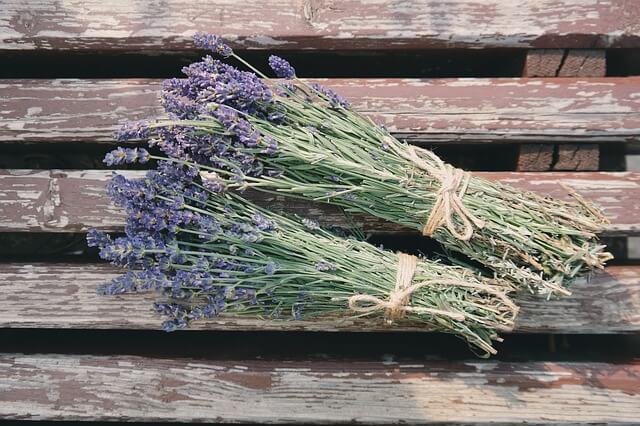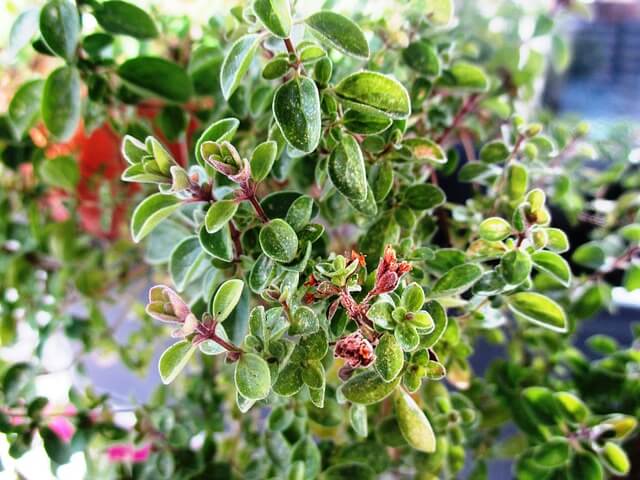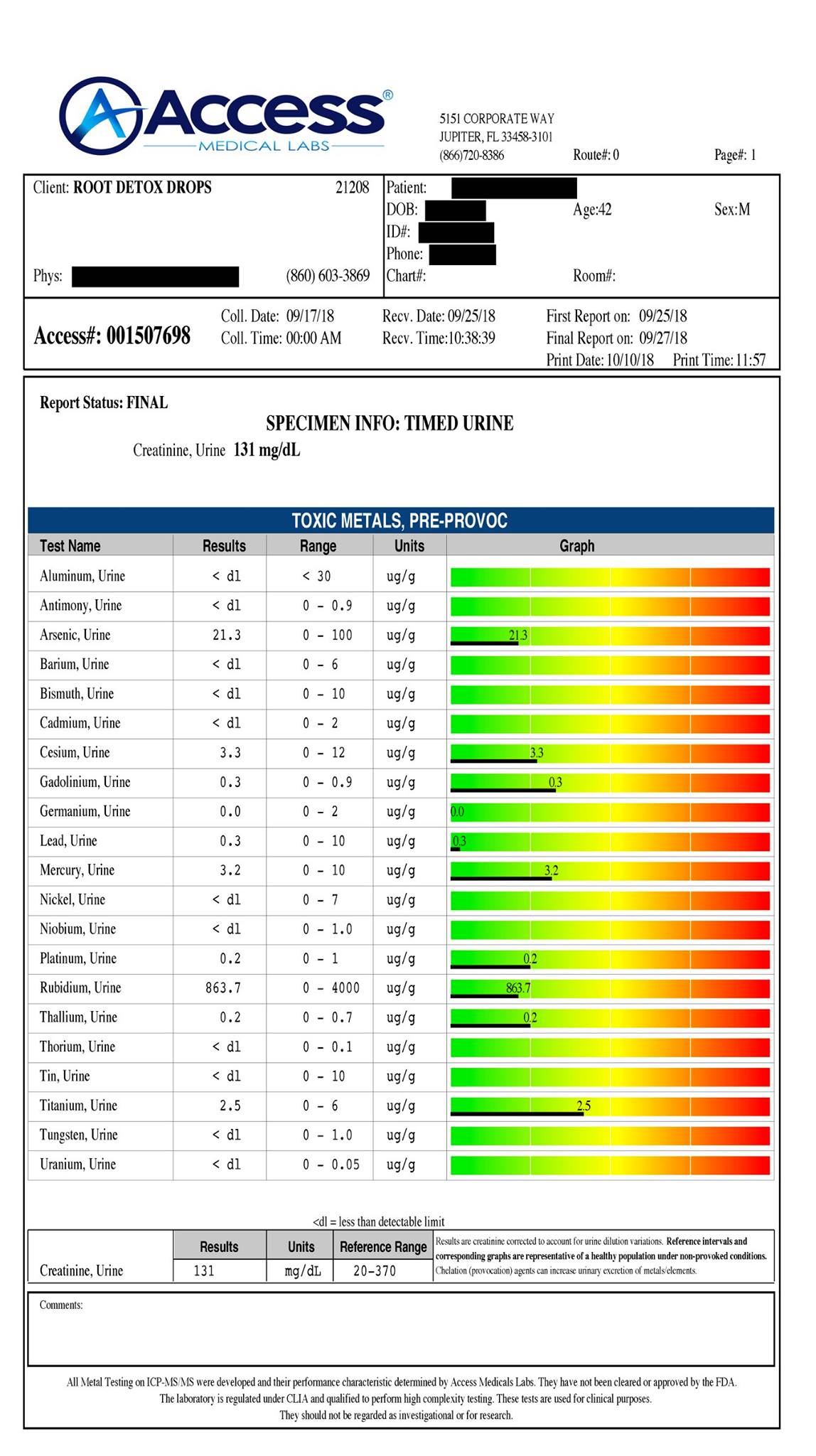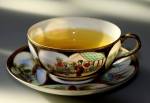Mediterranean Herbs -
Natural Healing Herbs
Many Mediterranean herbs are natural healing herbs.
Today many people grow herbs for cooking.
Unlike dried herbs, fresh herbs are usually added at the end of the cooking process to preserve their flavor.
Cooking with Fresh Herbs
The more delicate herbs (basil, chives, cilantro, dill
leaves, parsley, marjoram, mint) should be sprinkled onto the food a
minute or two before the end of cooking or just before the food is
served in order to preserve their flavor.
The less delicate herbs (for instance oregano or rosemary) can be added during the last 20 minutes of cooking.
How Can We Store Herbs
One of the best methods for preserving herbs for use during the winter is drying.
How to dry herbs?
Herbs can be dried by hanging them in bunches in a dry place out of direct sunlight.
The temperature of the area must be below 30° C (or 86° F) in order to prevent the herbs' essential oils from evaporating.
After drying you can store them in small paper bags (not in closed
containers because they still contain a certain amount of water and can
be spoiled). If you store them in such a manner, they may last up to a
year.
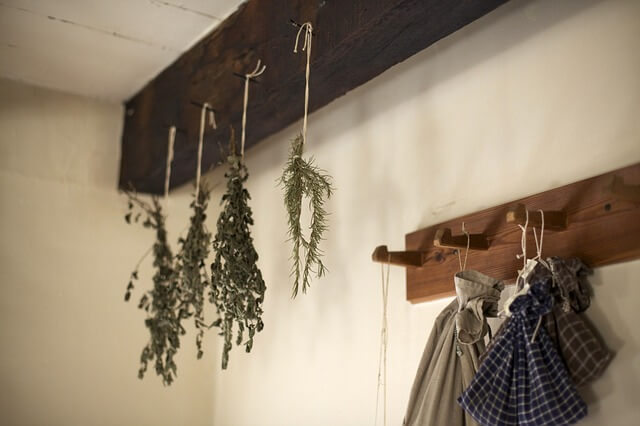
The scents of helichrysum, myrtle, sage and rosemary...
There is nothing more beautiful than to drive to the Croatian seaside at
the beginning of summer and enjoy the beautiful scents in the air.
In Dalmatia the soil is rocky and calciferous and the land at the seaside is typically Mediterranean.
The dry rocky Dalmatian land and the salty Bora (Bora
is a very strong cold wind that blows from the northeast onto the
Adriatic region of Croatia, most commonly in winter) give herbs an
intense scent and taste.
These Mediterranean herbs are very characteristic of Croatian cuisine.
They add a very special taste to meals and also have healing effects.
Olive tree
Olive has always been a symbol of the Mediterranean.
Olive tree is the tree of eternity.
It is an evergreen plant that grows on rocky soil and requires a climate
with no large temperature fluctuations. It can endure drought very
well, but not temperatures below zero.
Natural healing herbs - Olive tree
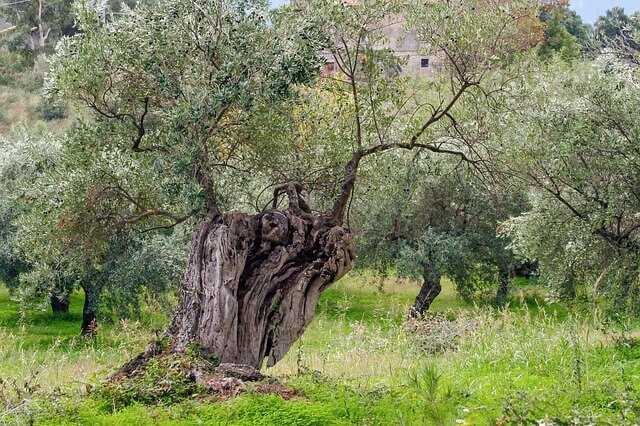
Olive trees are grown in warm parts of the Mediterranean near the seaside. They flower in May and June and the fruit matures from October to
February.
It is mostly used for olive oil (the "Mediterranean gold").
The Mediterranean diet, of course, tells us to make frequent use of olive oil.
However,
olive leaf oil also contains a lot of health benefits.
Natural Healing Herbs
Lavender (Lavandula officinalis)
Lavender is a wild herb which is well known for its wonderful scent.
In Croatia it mostly grows on islands - especially on the island of Hvar, which is famous for the production of lavender oil.
For more info on benefits of pure lavender oil, how to grow lavender or how to make lavender soap click here.
Natural healing herbs - Lavender
Its purple blue flowers are dried and placed in closets in linen bags as a moth repellent.
Lavender is mainly used in the cosmetic industry for soaps, perfume production and in aromatherapy.
A lavender syrup is used to treat insomnia (put one tablespoon of
lavender flowers and one of chamomile flowers in 2 dl of boiled water).
How to use lavender oil?
Lavender oil is used to treat migraine by massaging the forehead and the
neck, and as a tranquilizer (put a few drops of lavender oil in a hot
bath).
In cuisine, lavender is used very rarely.
St. John's Wort (Hypericum perforatum)
St. John's Wort is a herb that grows wild in forests and meadows and is used to heal wounds, especially burns.
Natural healing herbs - St. John's Wort
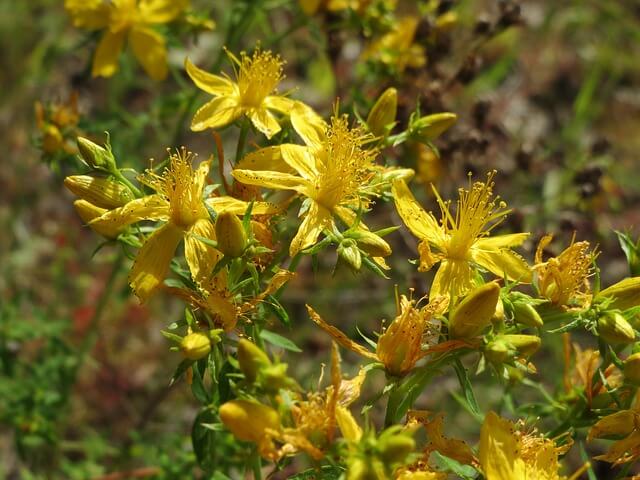
It is very efficient against depression and anxiety. Therefore, it should not be taken with anti-depressants.
Rosemary (Rosmarinus officinalis)
Like most Mediterranean herbs, rosemary grows wild on rocky terrain along the coast. It has a green bush and blue flowers.
Rosemary can be used in almost all Mediterranean dishes. It goes well
with lamb, poultry, steak, mushroom omelets and of course, fish.
It can be used either fresh or dried.
Natural healing herbs - Rosemary

Rosemary benefits
A solution of rosemary (20 g of leaves in one liter of water) is
efficient against stomach ailments, improves circulation and stimulates
physical activity.
Essential oil of rosemary is used for massage to treat problems with
circulation, migraine and rheumatism. A bath with rosemary oil relaxes
and refreshes. Since it acts as a stimulant, it is not suitable for
people with high blood pressure.
Growing rosemary is quite easy. Like most Mediterranean herbs, it grows
well in dry loose soil with plenty of sun, without too much water. It
can also be grown in pots on windowsills.
Sage (Salvia officinalis)
Sage has grey green velvet leaves and purple blue flowers and grows wild on the Croatian islands of Pag, Cres and Kornati.
It is a Mediterranean herb with a very intense scent.
Natural healing herbs - Sage
Sage is very good for healing.
It is an anti-inflammatory and antiseptic herb.
It regulates perspiration, relaxes spasms and prevents the formation of inflammation and a sore throat.
It cleanses the blood and removes mucus from respiratory organs and the
stomach. It also relieves intestinal disorders and diarrhea and helps
with gum diseases.
However, it should not be used during pregnancy and breastfeeding, because it can stop the production of breast milk.
In cuisine we can add it in small amounts to meat such as pork, roast
turkey or venison. It is also good in soups, moussaka and in toppings.
Basil (Ocimum basilicum)
Basil is a herb whose leaves are commonly used with tomatoes, pasta, fish and salads.
Try a homemade basil pesto - here is the recipe.
It is extremely sensitive to cold and pests.
Basil is one of the Mediterranean herbs which is much better fresh than
dried (its flavor vanishes almost completely with drying).
Natural healing herbs - Basil

It is one of the digestive herbs (it stimulates digestion). It is good
for stomach and intestinal problems as well as headaches and migraines.
We can easily grow it in pots on the windowsill, but it should be protected from the cold.
Marjoram (Origanum marjoram)
Majoram is a herb that has a stimulating effect on the digestion (it eases digestion of heavy dishes such as stews, roast goose or fatty sausages) and is used to stimulate appetite and to treat problems in the stomach and intestines.
Natural healing herbs - Majoram
Mint
Mint is scented, aromatic and a self-grown herb. It is one of the best digestive herbs.
The mint herb that is used the most is a peppermint (Mentha piperita). It is used as a condiment with lamb dishes, although in cuisine Spear Mint or Spearmint (Mentha spicata) is used most commonly.
Natural healing herbs - Mint

Mint tea is excellent for the digestion and to prevent thirst and heartburn. It also stimulates the metabolism.
Peppermint oil can be inhaled (it helps with mucus even in chronic sinus
inflammation) and will help in reducing temperature (put a compress on
your chest).
Lemon Balm (Melissa officinalis)
Lemon Balm is a herb with oval leaves and yellow-white flowers.
It has a calming effect (helps to deal with stress) and stimulates
gases, and is also used to treat insomnia, headaches and digestive
problems.
Lemon balm is also one of the herbs that lower blood pressure because it stimulates circulation and reduces tension.
Natural healing herbs - Lemon Balm

It is added to fish dishes with "strong flavors", such as dishes with conger eel or eel, sauces, salads, cheese, yogurt and sweet dishes (fruit desserts).
Myrtle (Myrtus communis)
Natural healing herbs - Myrtle
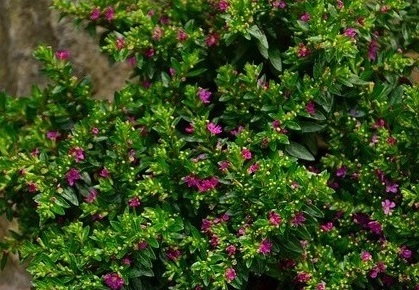
Myrtle is an evergreen shrub with white scented flowers.
It helps with colds and lung infections. Myrtle oil has an
anti-inflammatory effect and is good for easing the pain of rheumatism
and arthritis.
In cuisine it aromatizes fish and pork dishes.
Immortelle (Helichrysum italicum)
Immortelle is a Mediterranean herb with narrow leaves and yellow flowers
which grows on sunny rocky ground and slopes, in rock crevices,
abandoned vineyards and on road edges.
It has very intense scent. Therefore, it is most commonly used in the form of essential oil.
Immortelle stimulates the secretion of gastric juices and gall and has
an anti-inflammatory effect. It also helps with bloating, liver and gall
bladder diseases as well as skin problems.
Thyme (Thymus vulgaris)
Thyme is one of the most popular spice herbs in Europe.
It has a slightly bitter taste and goes well with spicy dishes such as
soups, stews and sauces, no matter whether they are made with fish, meat
or vegetables.
Natural healing herbs - Thyme
It is a good herb for bronchitis, pneumonia, asthma, sore throat (it has an antiseptic effect, so it is very good for all sorts of infections).
Laurel (Laurus nobilis)
Laurel is a short evergreen tree or a shrub.
It leaves are cooked together with food, but they are taken out before serving. It gives a special flavor to food.
Natural healing herbs - Laurel

Laurel relieves bloating, stimulates the digestive glands and helps in digestion particularly of food high in fat.
It is used at the end of cooking as a spice in meat dishes and stews.
Parsley (Petroselinum crispum)
Parsley is the most commonly used herb. It is added chopped to many dishes at the end of cooking.
Parsley tea has detoxifying properties, and beats urinary tract infections.
Natural healing herbs - Parsley

It is also used for masking undesirable smells (e.g. garlic) and we can chew it to improve our breath.
Garlic (Allium sativum)
Garlic is a home pharmacy in its own right. It has antibacterial characteristics.
Many of garlic health benefits have been known since ancient times.
It is especially good for all types of infection, helps in the treatment
of abdominal microorganisms and parasites, lowers cholesterol, reduces
blood clotting (if you are taking blood-thinning medications you should
consult your doctor before taking garlic because you may need to reduce
your medication dosage) and cleans the digestive system.
Natural healing herbs - Garlic
In cuisine it improves the taste of many ingredients and is used all around the world.
Return from Natural Healing Herbs page to Home Page
SUBSCRIBE
to Mediterranean Diet Newsletter and get a FREE E-BOOK:
Printable Weekly Diet Meal Plan With Instructions!
Do you love French food? Arguably the best food in the world – although many countries would disagree – French food is loved by everyone. Here are more than 200 recipes to help you bring a little French love into your kitchen. www.lovefrenchfood.com



